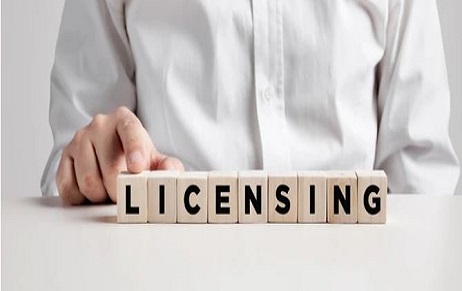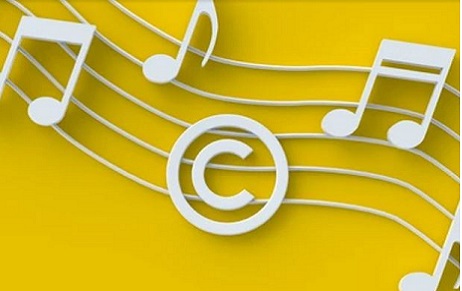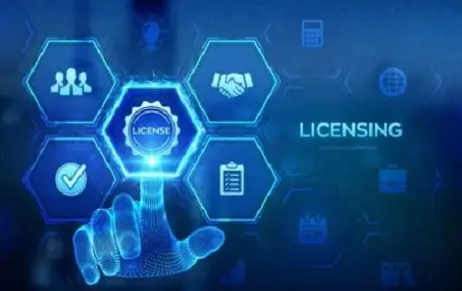Any successful café, restaurant, or retail establishment's environment is greatly influenced by its music. It…
Compulsory licensing on copyright | What is the Credibility?
Introduction
Copyright is an Intellectual Property Rights law that insures the protection to the creator on literary, dramatic, producer or reproducer or artistic work also to the producer of the filmography of the work and sound recordings. It also gives the protection on the field of software and information practices. Under Section 13 of the Copyright Act 1957, it talks about the protection of the works by providing the privilege to the creators by preserving their work for his life. It saves the creators originality of expression and provides the space and platform to the person to publish it in the safe and secured environment.
Copyright falls under the three basic elements which are following
- Originality
- Creativity
- Fixation
Now we take a look on what the elements talk about?
Originality of any work serves the basic and the reasoning behind which any work has been introduced. It gives the knowledge to the viewers that the work is new and well-incorporated for the faith and progress of the society. Any invention which has been invented it always starts with an idea which has not been copied or should be copied in near future. It is basically a work which adapted and invented through the new process and idea.
Creativity defines the theory of “modicum of creativity” which defines the state of minimalistic work or trying to setting the bar low in copyright. It supports the minimal creativity which is not tend to be copyrighted in the public domain.
Fixation means work which is done both verbally and theoretically are said to be “fixed” and verified in the court. The work has to be done in an ephemeral way.
Case law – Feist Publication Inc vs Rural Telephone Service Co. 499 U.S. 340
FACTS
The Plaintiff/Respondent [Rural Telephone Service Company] is a Telephone service company obligated to issue an annual telephone directory as per the state regulation. The directory was termed as a ‘white and yellow pages’ to be distributed for free of charge due to the monopoly held by the plaintiff in the market. While making a directory that included the region of the Plaintiff’s monopoly market the defendant was denied a license by the plaintiff to include enter from the plaintiff’s directory. The defendant had copied the same without the consent. The plaintiff field a suit for the copyright infringement.
The main issue that has been raised is whether the names, phone numbers and the addresses from the directory can be copyrighted or not?
The new law explains that in the section 102 of the Copyright act 1976 was applied which gives the credibility for the “original work of authorship.”
Copyrightability of compilation were mentioned as per section 101 and 103 where the court emphasized on the fact that the final work of compilation inclusive of selection and arrangement of facts is copyrightable to the certain extended limits.
The existing law regarding copyright protection in the U.S. followed the “Sweat of the Brow” doctrine says that any work in which a substantial amount of time and energy was invested would be considered as copyrightable.
[Image Sources : Shutterstock]
 Significance of compulsory licensing in India?
Significance of compulsory licensing in India?
Compulsory licensing is a statutory license that gives the liberty to the copyrighted work without the permission from the copyright owner. It is an exclusive right to do an act related to the copyrighted work. This is a practised whenever a copyrighted work is withheld from the public domain. If the work has been done in the public domain the proper licensing of the copyrighted work is must. The said copyrighted work should be used when the proper licensing of the agreement has been done in a way in which the duration or the time period of the license is mentioned the royalty that is payable and the agreement should include the terms and the termination of the license if aforesaid.
There are the three basic rules which shall be followed while taking the license.
- License should be in the written format.
- The license should be signed by the copyright owner or any other agent who is authorised enough.
- The compulsory license is come under the section of Indian Copyright Act that is in Section 31 to 31 B talks about the compulsory licensing in India.
Compulsory licensing is necessary because some of the works which means to upheld in the public domain are needs to be verified by the authority. So that the further copyrighted work should be used in various academic and beneficiary works. It is said that it allows various kinds of the license which includes orphan works as well as the works from a disabled person.
It is also in some cases important for granting the compulsory licensing because what if, any cases may form where the author may have died before the publishing of the work and through this means of compulsory licensing the unpublished works of the author will get delivered in the public domain.
It is also important to know that the fair use of compulsory licensing is needed, there shall be no malpractices be entertained or continued in any way. Because when the copyrighted works will be presented or available to all with certain limitations it will usher for the betterment of the society.
What section 31D says?
Section 31 D talks about the statutory license for broadcasting of literary and musical works and sound of recordings. Any broadcasting organisation desirous of communicating to the public by the way of broadcast or by way of performance of a literary or musical work and sound recording which has already been published may do so subject to the provision of this section.
Case law – Entertainment Network (India)Lt. vs Super Cassette Industries Ltd.
Facts – In this case, Radio Mirchi was playing music and Super Cassette Industries had the rights for it. The music company filed for the permanent injunction while the suit was pending, the FM operators applied to the copyright Board for the grant of the compulsory license under Sectio 31(1)(b) of the Indian Copyright Act.
The question that arose here was rather in such a particular situation granting of the compulsory license was viable or not?
The Broadcasters, that is Radio Mirchi, has argued on which they claim That since a license has already been granted to AIR and Radio City there were no grounds on which a license to Radio Mirchi should be denied on anyway.
Now for more elaboration just make a question for better understanding the concept by taking an example
Gracy has what she thinks would be the great idea for a new business. She would like to rent portable mp3 player at health clubs and golf resorts. The mp3 player would pre-loaded with music, so that people who did not bring along their own players could still listen to music while they were exercising or golfing. Each player would have 5000 songs on it, and the mp3 player do not allow further copying of the songs loaded on the player. Gracy purchased the authorised copies of Compact Discs of all the music she would like to play. Now she wanted to know whether she needs any further copyright permissions to regulate her business in India, and if so? What are the possible measures or permissions she can opt or go through for the ease of her business?
Explanation
Gracy would need to obtain the permission from the copyright owners for each of the songs she would like to play and also purchase for her business. She needs the permission which would be likely in the form of license agreement and this agreement would specifically be considering all the laws and permissions and on which conditions she would be getting the access of all the songs she wanted. For her business. The easiest way she can get the permission is via contacting the music publishing companies who owns or administers the rights of the songs. In India the said companies are T-series, Sony Music India. And then she needs to find which company owns the rights of the songs which she wanted to use in her discs. After the said agreement she needs to pay the reasonable amount to the copyright owners for the usage of the songs. This could be the one-time payment or in the form of royalty to the companies. Also, she needs the permission from the health clubs and golf resorts where she is going to rent mp3 player. Because these premises have their own policies and Gracy needs to find out how to negotiate with the said agreement.
Conclusion
The permission under the copyright act is an integral part of the copyright regime. Copyrighted works should have the complete monopoly for their works in the society. Through compulsory licensing in India, it is capturing and broadening the way for which copyright regime and its application are still widening due to the ever-changing circumstances.
Author : Alakshya Singh, in case of any queries please contact/write back to us via email to chhavi@khuranaandkhurana.com or at IIPRD.

 Significance of compulsory licensing in India?
Significance of compulsory licensing in India? 

